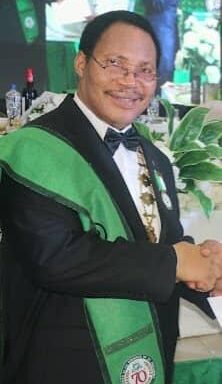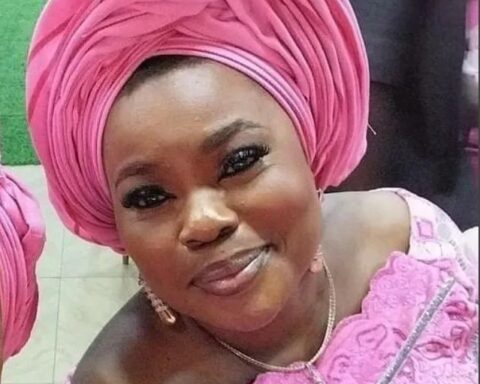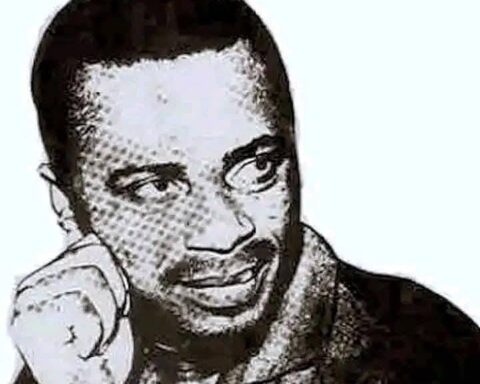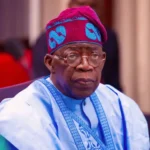In a historic judgement on Tuesday 30th September, 2025, Hon. Justice Onome Marshal-Umukoro of Delta State High Court sitting in Asaba has awarded N50million as exemplary damages and another N5million as cost of application in favour of Mr. Frank Izuka Nwosa in a Suit No: DTHC/ASB/FR/56/2025 he filed against Ogbueshi Uche Nwajei (Head/Onoi of Otu-Ihaza Ahaba, Asaba) Mr. Charles Okocha (Member, Otu-Ihaza Ahaba, Asaba) Ogbueshi Amechi Nwanze (Member, Otu-Ihaza Ahaba, Asaba) Charles Enemokwu (Secretary, Otu-Ihaza Ahaba, Asaba) (For themselves and on behalf of Otu-Ihaza Ahaba). They are respondents to the suit.
The applicant (Mr. Frank Izuka Nwosa) had brought the application by way of an Originating Motion on Notice dated the 17th day of April, 2025, and filed on the same day, pursuant to Section 46 (1) of the Constitution of the Federal Republic of Nigeria, 1999 (as amended), Order II Rules 1, 2, 3, 4, & 5 of the Fundamental
Rights (Enforcement Procedure) Rules 2009, and Article 2 of the African Charter on Human and Peoples’ Rights.
He had sought the enforcement of his fundamental human rights against the respondents, who are the Head/Onoi, Members, and Secretary of Otu-Ihaza
Ahaba, Asaba. The applicant’s case, was contained in his Originating
Motion, Supporting Affidavit (of 15 paragraphs deposed to by himself), and Further Affidavit (of 8 paragraphs), along with Exhibits marked ‘A’ and ‘B’.
The applicant had sought some reliefs from the Court among which was a declaration that the respondents’ decision to ostracise and suspend him from all traditional activities in Asaba constituted a violation of his fundamental right to freedom of association, guaranteed under Section 40 of the 1999 Constitution of the Federal Republic of Nigeria and Article 11 of the African Charter on Human and People’s Rights, and is illegal, null and void.
The applicant further sought a declaration that the respondents’ decision to ostracise and suspend him from all traditional activities in Asaba, without affording him any hearing, constituted a violation of his right to fair hearing, guaranteed under Section 36 (1) of the 1999 Constitution, and is illegal,
null and void. Therefore, he sought an Order of the Court directing the respondents to tender a written apology to the Applicant for the breach of his fundamental right to freedom of association and right to fair hearing.
The applicant further sought an Order of the Court for the respondents to pay him the sum of N50million (Fifty Million Naira) being exemplary damages against the respondents jointly and severally for their flagrant violation of his fundamental right to freedom of association and right to fair hearing.
In addition to the afore-mentioned reliefs, the applicant had sought an injunction restraining the respondents, by themselves, their servants, agents, privies or otherwise howsoever, from further breaching his fundamental right to fair hearing or interfering with his right to freedom of association in any manner
whatsoever.
The applicant in his application had submitted that the grounds for asking for the reliefs hinged on the fact that the respondents ostracised and suspended him from all traditional activities in Asaba, violating his right to freedom of association and fair hearing. He contended that the respondents’ conduct showed a flagrant disregard for the law and is cruel, insolent, outrageous, and malicious, thus entitling him to damages.
He had averred that as a result of his support for Ogbueshi Anthony Konwea, the respondents ostracised and suspended him from all traditional
activities in Asaba via a letter dated 14th November 2024 (Exhibit A). He was accused of disrespect, insubordination, and flagrant disregard for the authority of his royal majesty. The applicant claimed he did not commit the alleged acts and was not given an opportunity to defend himself or hear the allegations before being ostracised and suspended.
He further stated that the respondents warned indigenes of Asaba against associating with him, and anyone caught doing so would be ostracised. As a result, he could no longer attend traditional and social engagements in Afeke Village, Umuaji Quarters, Asaba, and has been removed from the community WhatsApp group platform. This action, he argued, has curtailed his right of assembly and freedom of association. The applicant also attached Exhibit B, a letter of suspension dated 4th October 2024, to Ogbueshi Chuks Okonkwo, who supported Ogbueshi Anthony Konwea, for themselves and on behalf of Otu- Ihaza Ahaba, Asaba.
The respondents in their Counter- Affidavits and Written Addresses opposed the position of the applicant, contending among other things that the 1st and 4th respondents merely suspended the applicant because he supported someone who took the Asagba of Asaba to Court, and “this falls within the purview of Asaba native law and custom. They argued that this was not a breach of fundamental rights, but a matter of Asaba customary law on administration and adjudication. They submitted that a native of Asaba first brings matters to his village to resolve, and if necessary, through the hierarchy of traditional
adjudication.
They held that non-compliance with a decision leads to automatic suspension. If a party goes to court, his suspension is not for non-compliance with a decision but for failing to comply with the decision given against him within Oge-Ato. They claimed that the applicant was not heard in defence before the suspension was issued. The applicant, a member of the Otu-Ihaza, chose to rush to
court instead of taking out a traditional summons to the Otu-Ihaza.
They stated further that “suspension was issued to draw attention to the person affected, and the matter for suspension would be dealt with on merits upon the affected party presenting kola nuts and drinks to the traditional body. The office of the Asagba of Asaba is the highest traditional authority. A notice of suspension is a subtle invitation to take steps to reunite with brothers.” They urged the Court to dismiss the application.
The 2nd respondent, Mr. Charles Okocha, deposed that he was not a principal officer of Otu-Ihaza Ahaba, Asaba, and was not involved in the matter or the decision to suspend the applicant. He claimed that the Otu-Ihaza Ahaba oversees the customs and traditions of Asaba and that the decision was handled by the Otu-Ihaza. He pointed out that the letter of suspension (Exhibit A) was signed by the 4th Respondent, who is a Joint Secretary. He contended that the applicant’s case lacked merit and was brought in bad faith, urging the Court to strike out his name from the suit.
In the same vein, the 3rd Respondent, Ogbueshi Amechi Nwanze, stated that he was neither present nor participated in the acts complained of in the application.
He asserted that all male indigenes of Asaba born between 1957 and 1968 are automatically members of Otu-Ihaza, and as a lecturer, he has not attended Otu- Ihaza meetings since September 2024. His counsel also urged the Court to compare the signature on Exhibit B (attached to the applicant’s further affidavit) with his signature on his counter-affidavit, suggesting he did not sign Exhibit B.
Having carefully considered the originating motion, supporting and further affidavits, counter-affidavits, and written addresses of all parties, and drawing upon relevant case law and having identified/addressed certain issues for determination particularly with respect to meanings of “Ostracism” as alleged by the applicant and “Suspension” as contended by the respondents, the Court ruled that the respondents’ decision to ostracise and suspend Mr. Frank Izuka Nwosa (the applicant) from all traditional activities in Asaba constituted a gross violation of his fundamental right to freedom of association, as guaranteed under Section 40 of the 1999 Constitution of the Federal Republic of Nigeria, 1999 (as
amended) and Article 11 of the African Charter on Human and People’s Rights, and is therefore illegal, null, and void.
The Court further ruled that the Respondents’ decision to ostracise and suspend the applicant from all traditional activities in Asaba, without affording him any hearing, constituted a gross violation of his fundamental right to fair hearing, as guaranteed under Section 36 (1) of the 1999 Constitution of the Federal Republic of Nigeria, 1999 (as amended), and is therefore illegal, null, and void.
Subsequent to the aforementioned breaches, the Court ordered that the respondents, jointly and severally, should tender a written apology to the applicant for the flagrant breach of his fundamental rights to freedom of association and fair hearing. “This apology shall be published in two (2) reputable national daily newspapers.”
The Court also ruled that the respondents, jointly and severally, should pay the sum of N50million (Fifty Million Naira) to the applicant as exemplary damages for the flagrant and malicious violation of his fundamental human rights and another N5million (Five Million Naira only) jointly and severally in favour of the application as cost of his application.
The judge held that “had he not been ostracised by the respondents, the applicant would not have needed to employ the services of a legal practitioner with a PhD. He is, therefore, entitled to recover the cost of engaging the services of his learned counsel, who was very diligent in the prosecution of this suit.
A perpetual injunction was also granted by the Court restraining the respondents, by themselves, their servants, agents, privies, or any person acting through them or on their behalf, from further breaching the applicant’s fundamental rights or from interfering with his right to freedom of association, peaceful assembly, or any other fundamental right guaranteed under the Constitution of the Federal
Republic of Nigeria, 1999 (as amended) and the African Charter on Human and People’s Rights.
The judge further ruled that “this judgment shall be served on the present Asagba of Asaba, the Traditional Ruler of Asaba, who is the embodiment and custodian of the native law and customs of Asaba, who, fortunately, is a Professor of Law and a Senior Advocate of Nigeria (SAN).”



























